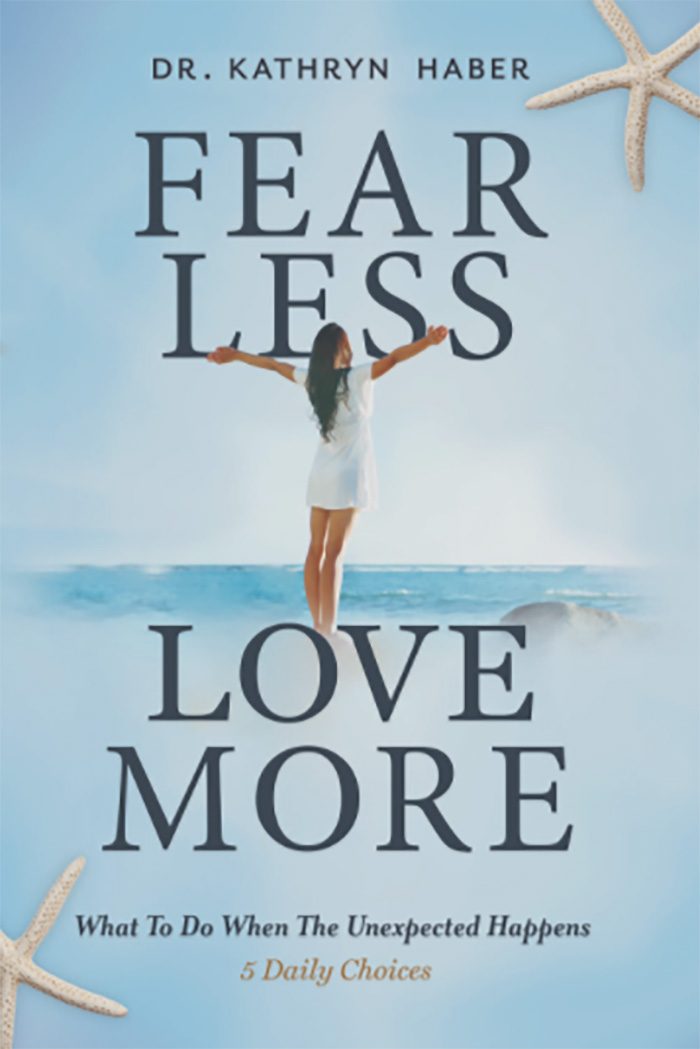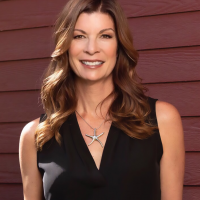View this post on Instagram
We are human and, by definition, imperfect.
We often operate from a position of fear in this unpredictable and difficult world we live in—whether we are dealing with day-to-day challenges or larger natural disasters, pandemics, or global concerns.
We find ourselves in “protect” mode, falling prey to our egocentric behaviors rather than thinking beyond ourselves, considering the whole environment, our community, what’s in the best interest of others.
When we behave in eco-centric ways, connecting with others for the greater good, we are our best selves. Beyond our biological chemistry, helping others gives us a sense of purpose which goes beyond the fleeting emotions of feeling happy, creating an internal peace that is sustainable over time.
While fear is part of the natural human condition, if we submit to it, we’re in jeopardy of recoiling from life, isolating ourselves, and staying exactly where—and who—we are, not growing into the people we are born to be in this life.
I lost my dad, mom, brother, and sister to cancer and had my own cancer fight with three babies under three at home. I also have a genetic BRCA1 predisposition for cancer recurrence. To help make it through these losses and other life challenges, I explored spirituality, researched the greatest minds, and concluded that there are five choices which can help us live a peaceful and fulfilled life.
I illuminate these five choices through personal and professional vignettes—some funny, some painful, and some hopefully inspirational—in my book, Fear Less, Love More. The sole purpose of birthing this book is to potentially help others who are experiencing their own life challenges, whatever they may be.
***
Thank you, nurse.
We all know cancer doesn’t discriminate. It is devastating, no matter who you are, what your profession is, or how “good” you try to live your life. Life happens; it too does not discriminate—it keeps happening.
Given my BRCA1 diagnosis, six months after my chemo and radiation for lymphoma, at 39 years old, I had my ovaries removed, a prophylactic double mastectomy, and subsequent reconstruction of my breasts. The removal of my breasts perhaps should have been more traumatic than it was. My breasts were relatively small to begin with and, after breastfeeding three babies, less than taut. So, the idea of a new set was actually okay with me. I didn’t truly have a choice given the dreary statistic of a 72 percent chance of breast cancer in my lifetime if I chose not to remove them.
What I remember most about that surgery was the well-seasoned nurse who checked me in. She was reviewing my history and didn’t hold back her disbelief about my “bad luck.”
“Four miscarriages, your father died four years ago, your sister three years ago, you went through chemo and radiation for lymphoma last year, you had an oophorectomy earlier this year, and now you’re having your breasts removed? Really? I’ve never seen someone with such a bad history.”
Thank you, nurse. Just what I wanted to hear before heading into surgery.
When faced with unexpected or extraordinary circumstances, we can ask ourselves these two questions to help ourselves get a bit better footing for any tumultuous times ahead:
1. Egocentric or eco-centric?
When we operate from a place of fear, we operate egocentrically and behave in unproductive ways. When we are fearful, we go into “fight, flight, or freeze” mode and feel the need to protect ourselves. In fight or flight, it is perfectly normal to find our hearts racing, our skin flushed, our pupils dilated, or our bodies trembling. In the case of “freeze,” our parasympathetic system dominates and we freeze, or in severe cases faint. Back in the days of our ancestors, this cortisol and adrenaline rush helped us survive against dangerous threats—lions, tigers, and bears. But today, even perceived threats can make our central nervous system go haywire.
Psychologically speaking, in the face of fear, we start to protect ourselves with “me” or ego behaviors—like feeling the need to control, shutting others out, playing the victim, or being reactive, passive-aggressive, or manipulative. We put ourselves before the collective good or the community because we feel we are in real or perceived danger and therefore we think and behave egocentrically.
We human beings are great at beating ourselves up. We tell ourselves we aren’t good enough, thin enough, funny enough, attractive enough, smart enough, and so on. However, when we replace this negative self-talk with positive self-talk that is loving—we are good enough, we have gifts and talents that are valued, we are loved, we are worthy of love—and have faith that “we’ve got this,” the relief we can experience is incredibly powerful. When we are good to ourselves, when we know we are worthy of love and love ourselves, then we can give of ourselves to others.
When we show compassion and care toward others, we are operating from love, not fear. When we operate from a place of love, we are no longer egocentric, but rather, we are eco-centric, looking to improve the whole—our entire ecosystem, the environment, our community, the universe. When we trust in ourselves, each other, the universe, we are our best selves. We are more caring, compassionate, and gracious toward others, and we are less judgmental or short-tempered and more patient and respectful. This choice of love gives us a sense of purpose in this life and yields great fulfillment, knowing we are helping others and living the life we were born to live.
In A Return to Love, Marianne Williamson says it best:
“Love is what we were born with. Fear is what we have learned here. The spiritual journey is the relinquishment—or unlearning—of fear and the acceptance of love back into our hearts…It is our ultimate reality and our purpose on earth…To experience love in ourselves and others, is the meaning of life.” (1992, xxii)
When we are acting in a loving, eco-centric way, the universe more often than not brings that love and compassion back to us. Positive energy flows, and things work out in positive ways. Conversely, when we live in fear and behave egocentrically, we find ourselves “stuck” in our negative self-talk and in victim mode, finding it hard to move forward with hope and optimism.
2. Basement or Balcony?
Keynote inspirational speaker Dr. Adolph Brown believes there are “balcony” people and “basement” people. Balcony people see the glass as half full. They live in the fresh air, looking for the silver lining in every difficulty they encounter. Basement people, on the other hand, are negative and cynical. They will find just about anything to complain about in their dreary, dank surroundings.
We have to be careful of basement people as they may try to suck us into their world without windows. They are egocentric and will likely try to get us to see their pessimistic view of the world and people around us.
The egocentric self does everything it can to lead us further into anxiety. Our “true self,” what Williamson calls the “spiritual soul,” on the other hand, does “everything to lead us into inner peace” (1992, 41). To paraphrase her, the spiritual soul is the divine’s response to fear. It is the divine’s answer to the ego. The spiritual soul is eco-centric.
In other words, the spiritual soul wants us to courageously love ourselves, our neighbors, our universe, from our balconies. Doing so feeds and nourishes our souls, allowing for greater internal peace and a sense of fulfillment in this life.
~









Read 0 comments and reply